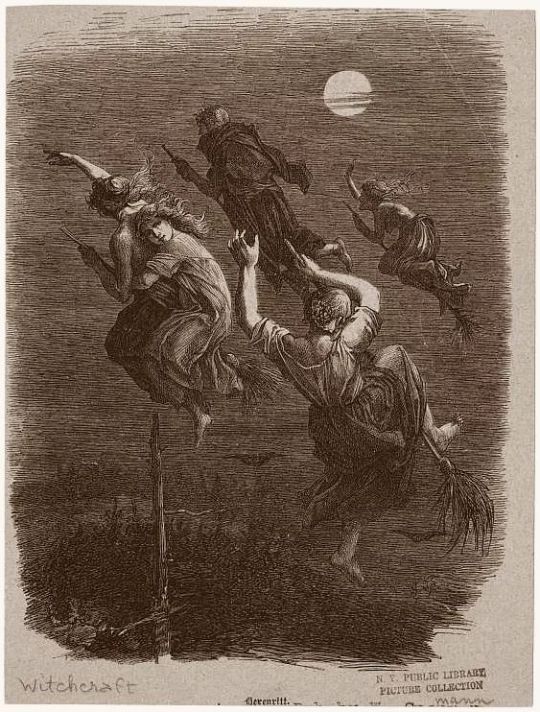#Gustav Spangenberg
Explore tagged Tumblr posts
Text

Gustav Spangenberg (1828-1891), 'Der Zug des Todes' (The Train of Death), 1878 "The dance of death motif shows death as a skeleton in the garb of a sacristan with a death bell in his hand. It precedes a procession in which people of all classes have joined the ranks, some of whom are dressed in Renaissance style. Children are also involved, so the motif has a memento mori character that is intended to remind us of transience even at a young age. But death also has something easy, it seems to dance with a coquettish gesture, in front of it walk two girls in festive dresses with wreaths of flowers, next to them a bride. The picture shows the train at the moment it reaches a crossroads where other people are waiting to be taken along. On the left sits an old, emaciated woman, a widow in her black robe, and asks to be taken with her hands raised imploringly. But death seems to ignore them, it takes the right to decide the fate of the people itself. Will he take the young man on the right side of the picture with him, a soldier who is saying goodbye to his weeping sweetheart at a wayside shrine? A flock of black birds follows the procession, behind which the sun is just setting on the horizon, symbolizing the way out of the light into the darkness of death." Source
#Gustav Spangenberg#german artists#german painters#totentanz#wood engraving#engravings#death#memento mori
61 notes
·
View notes
Text

#art#Zeitgeist#painting#figure realism#alte nationalgalerie#Der Zug des Todes#gustave adolph spangenberg
53 notes
·
View notes
Text

Der Zug des Todes, The Train of Death
Gustav Adolph Spangenberg, 1876
Alte Nationalgalerie, Berlin
0 notes
Photo

Gustav Spangenberg
689 notes
·
View notes
Photo

2 notes
·
View notes
Photo

by gustav adolph spangenberg - aristotales'in okulu
peripatetik okul
5 notes
·
View notes
Photo

Gustav Spangenberg, Hexxenritt “chevauchée de sorciéres” , 1870.
#Bizarre au Havre#illustration#old engraving#witch#witchcraft#sorciére#sorcellerie#paranormal#sabbath#woman#gustav spangenberg#art#artist
26 notes
·
View notes
Photo

Gustav Adolf Spangenberg - Hexenritt (The Witches Ride), c. 1870 (colored).
3 notes
·
View notes
Text

Hexenritt - Witches Riding. ~ Gustav Adolph Spangenberg (ca. 1870)
#occult art#occultism#dark art#occult#left hand path#dark aesthetic#witch#witchcraft#lucifer#satanism#satanic witch#flying witch#witches#witch aesthetic#ritual#ritualistic#witches sabbat#sabbath#cultus sabbati#sabbat celebration
312 notes
·
View notes
Photo

Hexenritt—Witches ridin'. Gustav Adolph Spangenberg ~ ca.1870 New York Public Library • via Bibliothèque Infernale on FB
42 notes
·
View notes
Photo
“Hexenritt” (The Witches' Ride) by Gustav Adolf Spangenberg

2K notes
·
View notes
Text
Le métier de la critique: il tema del camminare nella letteratura
Le métier de la critique: il tema del camminare nella letteratura
La letteratura offre molte esempi della trattazione del tema del camminare. Sarebbe impossibile ripercorrerla qui per intero.
La scuola di Aristotele – Gustav Adolph Spangenberg – 1883-1888
Solo rapidamente citerò il caso di Aristotele (348 a.C.-322 a.C.), la cui scuola filosofica è chiamata proprio “peripatetica” dal greco peri, ‘intorno’ e patein, ‘passeggiare’: questo nome evoca quella che…
View On WordPress
0 notes
Text

Gustav Spangenberg - The Train of Death (1876)
112 notes
·
View notes
Photo

Gustav Adolf Spangenberg - Hexenritt (The Witches Ride), c. 1870.
1 note
·
View note